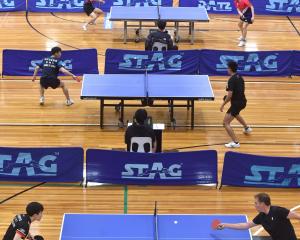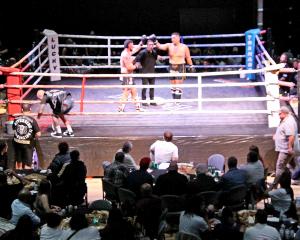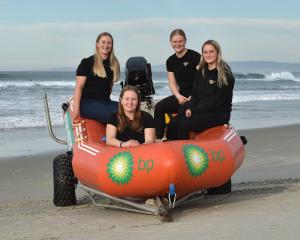Pokie machines are king, but sports betting is on the rise. Problem Gambling Foundation of New Zealand chief executive Graeme Ramsey discusses the issue with sports reporter Adrian Seconi.
Actually, the odds are not very good at all. New Zealanders gambled away more than $2 billion last year. The majority went into pokie machines, but sports betting is a growth area.
An estimated four out of five New Zealanders gamble in some form. For most, it never develops into a problem. But a 2006-07 New Zealand Health Survey found there were an estimated 54,000 problem or at-risk gamblers.
What can start out as a bit of harmless fun can develop into a serious habit. And sport is increasingly being used as the hook. It is a burgeoning business, according to Problem Gambling Foundation of New Zealand chief executive Graeme Ramsey, and he is bracing himself for the ''downstream'' repercussions.
''What you are seeing with the TAB is that traditional track betting or race betting is in decline worldwide and has been so, slowly, for a long, long time,'' he said.
Mobile phones have helped revolutionise the industry. You do not need to pop down to the TAB any more - the betting slip is in your pocket. There are so many different betting options and some offer more immediate results.
''As a general rule, the shorter the gap between placing a bet and getting a result, the more problematic that form of gambling can become. That is why pokie machines are so problematic, because you hit the button and a millisecond later you have a result.
''With lotteries, you buy a ticket and wait until Saturday. It is much less problematic.''
With one hand the TAB is slicing through the barriers which stand in the way of placing a bet, and with the other it is returning a portion of the profits to the community.
The funding is a blessing wrapped up in an ethical dilemma. Do you take the money and keep quiet about the harm gambling does?''I think there is very much a problem when we have our major sporting codes in this country reliant upon the proceeds of gambling. I think that that is an issue.
''Twenty or 30 years ago we did not have that problem, but we've allowed that to develop and have got what is an absolute dependency. And I'm sure that that will impact attitudes of sporting codes towards gambling.
''There is so much stigma attached to problem gambling. That stigma ... is one of the greatest barriers we have to deal with.
''A lot of the public health work we do is to address that stigma and therefore lower the barriers which prevent people seeking help.''
Sir John Kirwan has done tremendous work breaking down the barriers around mental illness, but where are the All Blacks speaking out against gambling?
The only message which appears to be getting through is sports betting is no different from,, say, kicking off your shoes, grabbing a beer and leaning back in your favourite armchair. It is just part of the ritual of watching sport and young men, in particular, are being drawn in, Ramsey says.
The marketing is aggressive and direct. Anyone with a TAB phone account and a mobile phone or an email address has probably received similar offers as the following example an Otago Daily Times colleague was presented with: ''Hi Robert, top up ur TAB account with $20 this wknd and get a $10 top-up bonus.''
It is free money if you can resist gambling it away.
Part of what makes watching, or even gambling on sport, so exciting is the belief it is unscripted and anything can happen. But is it?
What impact is betting having on the very integrity of sport?
Cricket has an expanding catalogue of sportsmen who have been caught fixing matches or under performing to order. Our own Lou Vincent recently added his name to the list of players banned for match fixing.
Jockey David Walker was recently banned from competitive horse racing for seven years after he was found guilty of race-fixing.
''The short answer is I think we don't know [how bad it is],'' Ramsay says.
''There has always been problems with corruption in sports betting. One only has to look at boxing, for example, to recognise that there has been that issue.
''But I think what we've got now is well beyond that and it appears we are just now starting to see how endemic it is in some particular sports.''
TOMORROW: Are sporting bodies keeping quiet about problem gambling because of the millions gaming trusts pour into sport each year?












